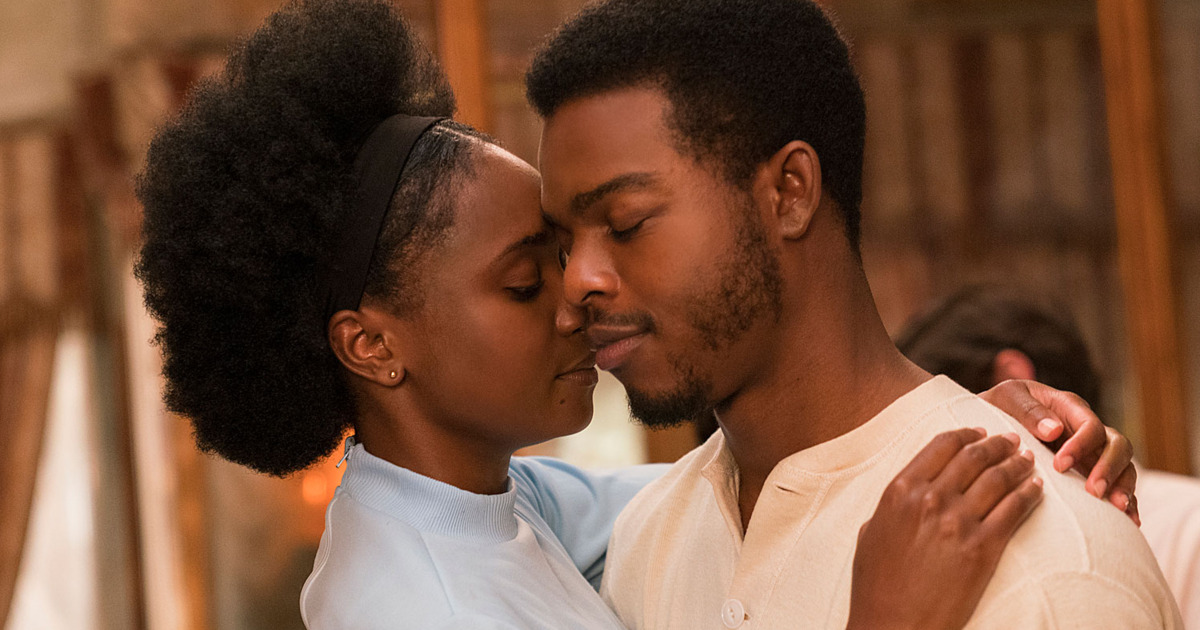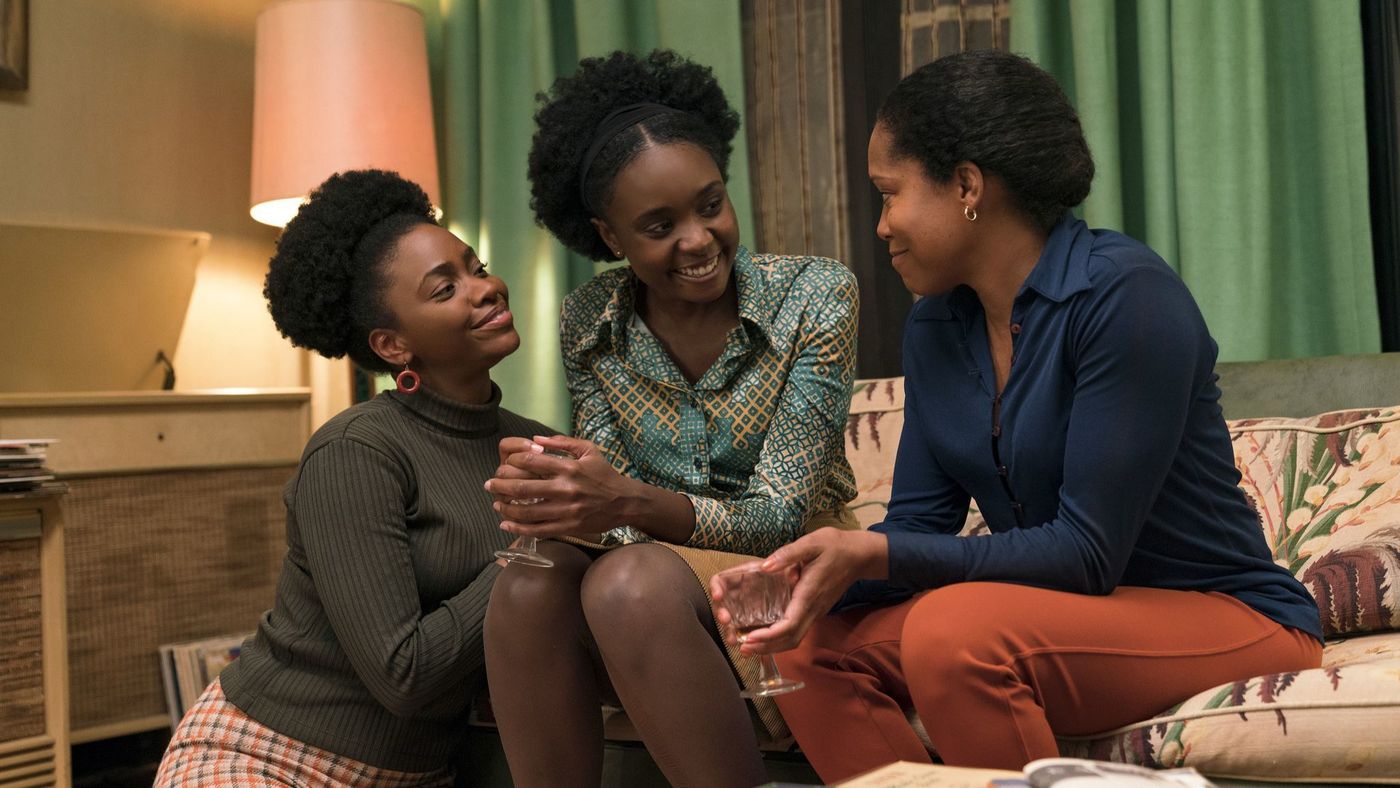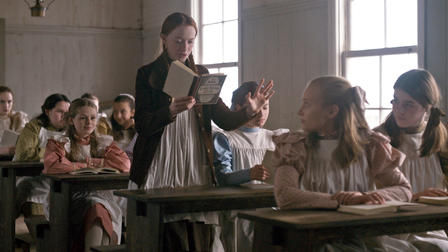Somehow I missed the “Redeeming Love” bandwagon, which is remarkable considering I grew up reading Christian romance novels and attended a Christian college. So I should start by saying that I’ve always heard wonderful things about the novel, I know many women who have been deeply moved and blessed by the book. At this point I have not read the book or seen the recent movie, but I did a deep dive into Twitter and YouTube reactions and reviews/summaries, and listened to an interview with author Francine Rivers. So I want to start by readily admitting that my knowledge of the book is secondhand. However, I have an extensive knowledge of the book of Hosea and the prophets in general and I was shocked to learn that the storyline of the book varies so significantly from the Biblical text that it’s based upon. While Hosea contains elements of a love story, the book is fundamentally a call to repentance for a sinful nation. I don’t want to rob anyone if they have been blessed by the novel. I think we should also be clear about the ways that Hosea differs and the potential harmful impact these differences could have.
Hosea is not about surviving abuse
Hosea is a prophet and the role of the prophets was to deliver God’s Word to the people of Israel. This could come in the form of sermons; it could also come in the form of acting out metaphors to illustrate the realities of Israel’s covenant disobedience. (I have a piece about the prophets using performance art as commanded by God here.) The point of these dramatic embodiments was to make spiritual truths a visceral reality. Hosea is commanded by God to marry a promiscuous woman to symbolize Israel’s idolatry and spiritual infidelity to God. The woman Hosea marries, Gomer, is not described as a survivor of sexual violence or exploitation. It is actually crucial to God’s teaching that she is a woman who chooses to be promiscuous because that is what Israel was doing. The entire reason that God is confronting Israel is because He has given them everything and they are so consumed by greed and selfishness that they can’t even recognize God’s hand in their lives (Hos. 2:5-9). They are not reacting to trauma, they are motivated by their own sin.
Trauma is not the same as willful rebellion
This is an extremely important distinction because Gomer/Israel’s motivations are core to God’s indictment. It is my understanding that the book contains both deep trauma for “Angel” and periods of purposeful waywardness in her storyline. That makes sense for a trauma survivor, but that is not what Israel was experiencing. Israel was in a period of wealth and comfort which was leading to a disregard for the poor and a belief that they didn’t need God. It was their comfort, affluence and pride that was their downfall, not suffering or insecurity. Israel knew what is right, “she” knew God’s commands and God’s invitation to righteousness that leads to flourishing for their whole society. But Israel was convinced they could worship God on the side while pursuing other gods and security from other nations rather than the Lord (6:1-6, 7:11-12). They were spiritually cheating on God even though He had been fully faithful to them. This makes the contrast of God’s love and mercy so powerful. God is not taking pity on and rescuing a traumatized victim. Israel had slapped God in the face with her disobedience for centuries and yet God was willing to stay and take her back. It is much easier to forgive someone who is acting out in pain and fear, to forgive choices that are not necessarily a personal attack. It is quite another thing to forgive someone who deliberately wounds and humiliates us. If we portray Gomer as a trauma survivor, we end up diminishing the depth of God’s patience and compassion in the face of our repeated rejection.
God is not harsh and judgmental towards survivors of abuse
If Gomer and the metaphor for Israel was about someone acting out in response to profound trauma, that would make God extremely harsh and unfair. The language God uses in Hosea is both intense righteous anger and judgment. These reactions are in response to the violence and exploitation and inequity the Israelites have brought into the land. (And Hosea contains an assurance of love and mercy if the people will turn from their disobedience.) Hosea contains elements of a powerful love story, but it is fundamentally a call to repentance from a path of disobedience. If God was expressing that level of indictment and punishment towards a person and a nation that had been deeply and unfairly wounded, that would put God in the place of a yet another abuser. When we confuse trauma with rebellion, we unintentionally imply that victims need to repent over the situations they are in. We must be clear that God is not further punishing the suffering but is calling the oppressors to repentance and renewal (10:13).
Christian men are not Hosea, we are all Gomer
A frustrating consequence of turning Biblical stories into romantic fiction is that it often creates a dynamic where men take the place of God in relationships with women. It’s true that Hosea is representing God in his marriage to Gomer, but that is about God’s relationship to the community of faith, not about marriage in general. I think a lot of women have walked away from reading/watching Redeeming Love feeling wistful for the day that they’ll meet a man who will overlook all their sins and shortcomings and love them unconditionally. That’s a good thing to desire. The main problem is it creates a power dynamic where Christian men are held up as pure and merciful and women as untrustworthy and weak. This allows stereotypes of women as vixens and temptresses, or alternately sad damaged girls in need of rescue, to propagate. While also allowing men to see themselves as the God figure rather than rightly identifying with Gomer and the unfaithful woman. Israel was intended to read Hosea’s prophesy and see themselves, both men and women, as the promiscuous wife. That would likely have been confrontational for men at the time but an effective reminder to everyone what covenant faithfulness means to God. None of us are the hero when we read Hosea, we are all meant to see our need for God’s repentance and forgiveness. When we reduce Hosea to a human love story, men can escape that narrative while women remain defined by it.
The Bible cares about the abuse of women and children
Hosea is about covenant disobedience and the call to repent in response to the assurance of God’s mercy. While Hosea is not specifically about healing from sexual abuse/misuse, the Bible deals with those topics in plenty of other places. In 2 Kings 4:1-7 the prophet Elisha performs a miracle so a widow won’t need to sell her sons into slavery. This act of providing for them demonstrates God’s care for women who are without resources and God’s desire to protect children from exploitation. We see Jesus protecting the woman caught in adultery (John 8:1-11) and speaking life to the woman at the well (John 4). Both are women who needed healing from sexual exploitation and pasts they regretted. These are experiences and realities that God cares very much about, and Jesus draws near to women who feel wounded in these areas. The Bible is wide enough that we can find many passages to help us engage themes of repentance and unconditional love, and healing from trauma and regret.
The Church needs to talk about these topics more often and more effectively
It is clear that Redeeming Love struck an important chord in the Church. As we think critically about this particular book’s use of scripture, we should not dismiss the meaningful ways it has ministered to women and girls. The Church has been woefully inadequate in addressing the abuse of women and children and has offered very few tools for understanding sexuality and healing from sexual trauma. As I was scanning Christian media for conversations about the movie, it was incredibly telling that the main concerns I saw raised were about the married adult sex scenes with no qualms about the depictions of child abuse and rape. That silence speaks volumes about our current unwillingness to have open and honest conversations about the state of sexuality and safety in the Church. Ultimately, Redeeming Love is not the problem and does not need to be vilified or dismissed. It may not be an accurate depiction of the book of Hosea. But it does offer a call to the Church to recognize the needs of women in our midst and to provide robust Biblical guidance for the issues we are navigating.











